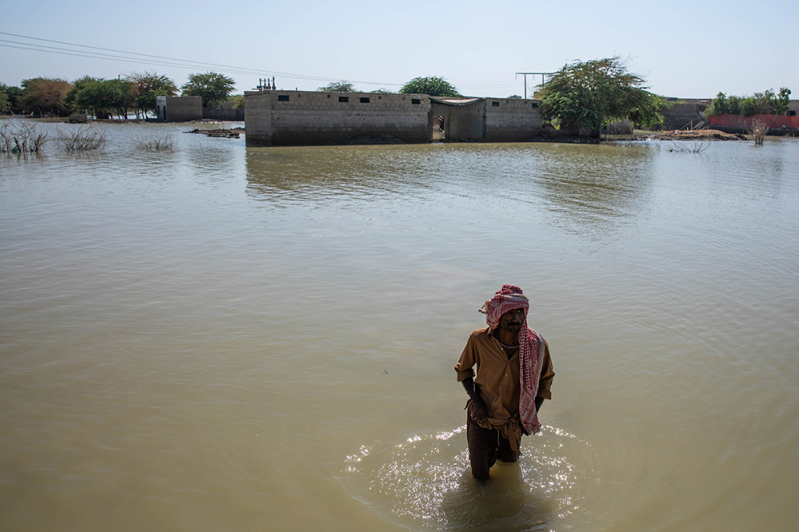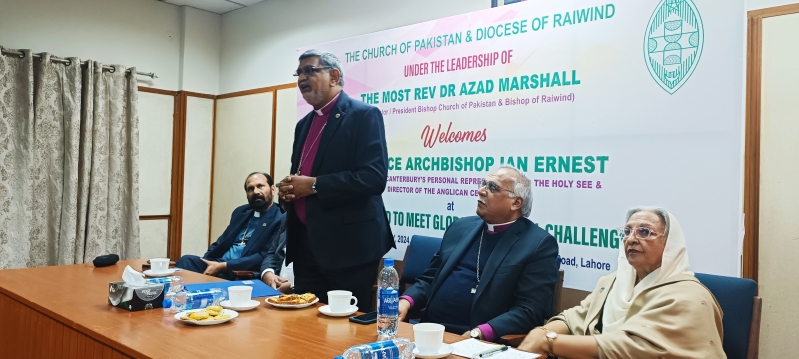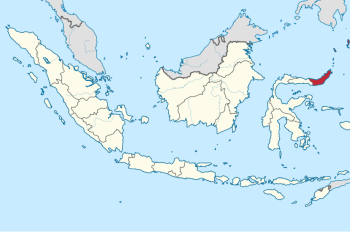
The Church of Pakistan has announced its commitment to take action on climate change in line with the Lambeth Declaration, reiterating that the climate emergency was not just a physical crisis, but also a spiritual one.
“The Church of Pakistan fully agrees with the Lambeth Call that humanity needs a spiritual and cultural transformation to protect our environment. There is still a chance to turn the tide, but all nations and communities need to act together now to save our planet, which is our common home,” said Church of Pakistan’s Moderator/President Bishop Dr Azad Marshall.
Bishop Marshall was addressing a partners’ meeting on climate action at the Church of Pakistan’s Diocese of Raiwand on Sunday. Archbishop Ian Ernest, the Archbishop of Canterbury’s Special Representative to the Holy See and Director of the Anglican Center Rome, who was in Pakistan on a three-day visit from Feb 2-4 also participated in the moot.
The moderator bishop emphasized the importance of instilling a spirit of stewardship, as embodied by the wisdom of the Christian tradition, to change the mindset towards the natural world.
Bishop Marshall noted with concern that though Pakistan was one of the most climate-vulnerable countries in the world, it was unfortunate that it was also the least funded to effectively combat the crisis.

Changing seasonal weather patterns, rising temperatures, variability of monsoons, and melting of glaciers in the north — compounded with recurrent extreme weather events and natural disasters — are just some of the effects of climate change that Pakistan has been forced to contend with in recent years. Their impact has also been felt among the socially marginalized Christian community, creating an increasing sense of urgency among churches.
Pakistan produces less than 1 percent of the world’s carbon footprint yet is among the countries suffering the biggest consequences of climate change. According to the Global Climate Risk Index, Pakistan is currently the fifth most climate-vulnerable country in the world, reportedly having lost nearly ten thousand lives and suffering economic losses worth billions of dollars due to climate change throughout the years 1999 to 2022.
“We need to act together to protect, restore, and safeguard the environment for ourselves and our future generations,” he said.
The Church of Pakistan, comprising eight dioceses and a network of over 400 churches, has pledged to make efforts to reduce its carbon footprint, promote environmental education and awareness, support climate-resilient development and disaster risk reduction, and advocate for solidarity with the most vulnerable communities. It is the first Protestant denomination in Pakistan to do so, with other church groups expected to follow in the near future.
Bishop Marshall said that Idaara Ibadat Trust, a faith-based institution working on adult literacy under his patronage, was also poised to take on the new challenge.
“Idaara Ibadat runs over 500 literacy centres across Pakistan and we have trained more than half a million people in literacy skills over the last 40 years. The vast networks we have created in communities across Pakistan will give impetus to the Church of Pakistan’s endeavours on raising awareness on the environmental challenges,” he said.
Lauding the Church of Pakistan’s initiative on climate action, Archbishop Ian Ernest said he was deeply impressed by the realisation in the church for collaborating with church partners and faith-based institutions to bring about the much-needed change by raising awareness and collective action.
He commended the Church of Pakistan’s moderator bishop for taking the Lambeth Calls seriously and for enabling partnerships so that “people could be informed not only to be aware of these problems but to act, to reflect about our responsibility because we share a common task of bringing about the values of the Kingdom.”
“I haven’t heard about the problems in Pakistan, so I think it’s good for you to raise your voices and to let the world know about it,” he said.
The archbishop said that the environment of crisis was not something that comes only as an issue to deal with.
“I think it’s a God-given opportunity for us to be able to change the mentality of our people and to bring about the values of the Kingdom where respect for God’s creation and respect for the other are of crucial importance. Without respecting what God has given us so freely, it would be difficult for us to be instruments of grace in the world,” he concluded.
Earlier, representatives of Church of Pakistan’s development partner organisations – Pak Mission Society (PMS) and Idaara Ibadat Trust – shared an overview of the distressing environmental situation in Pakistan and called for cohesive action to meet the climate challenges.
Adeel Rehmat, the chief executive officer of PMS, said that they supported Bishop Marshall’s vision to see the church at the forefront of the climate action campaign.
“We believe that the church is a major influencer and it has a pivotal role in raising awareness on climate justice. Together with the Church of Pakistan, PMS is envisioning a Green Ecumenical Movement in Pakistan which will focus on all four components of the Lambeth Call: Awareness, Attitude, Action and Advocacy,” said Rehmat.
The development expert said that PMS was looking to collaborate with the CoP in various projects, including regenerative farming, capacity building of the youth, establishing model clean areas, introducing climate curriculum developed by technical experts in schools and other institutions administered by the CoP, and establishing green church models, etc.
“We are also aiming to jointly advocate for Pakistan at COP-29 and all other relevant forums,” he said.
The Church of Pakistan’s initiative is part of a wider movement of faith-based organisations and leaders who are taking a stand on climate change, as they see the earth as a beautiful gift and a sacred trust from God. Other faith groups, such as Muslims, Buddhists, Hindus, Sikhs, Jews, and Baha’is, have also issued statements and launched campaigns on climate change.





